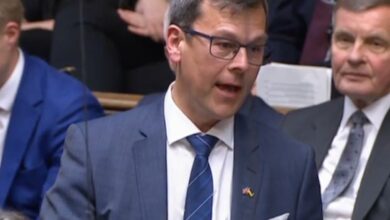WikiLeaks founder Julian Assange will not be immediately extradited as decision delayed

Julian Assange will not be immediately extradited to the US to face espionage charges as judges delayed a final decision over whether he can appeal his case.
It was feared the WikiLeaks founder, who is currently detained at high security Belmarsh prison, could have been put on plane in a matter of days if a last-ditch legal bid for an appeal failed.
His team suggested the 52-year-old could face up to 175 in prison if he is convicted for publishing of hundreds of thousands of leaked documents relating to the Afghanistan and Iraq wars – arguing his prosecution is “state retaliation” for his political views.
In a January 2021 ruling, then-district judge Vanessa Baraitser said that Assange should not be sent to the US, citing a real and “oppressive” risk of suicide, while ruling against him on all other issues.
But later that year US authorities won their High Court bid to overturn this block, paving the way towards Assange’s extradition.
During a two-day hearing in February, lawyers for the 52-year-old asked for the go-ahead to challenge the original judge’s dismissal of other parts of his case to prevent his extradition.
They argued his prosecution was retaliation for his political views, meaning it would be unlawful to extradite him under UK law.
Mark Summers KC told the court: “This is a paradigm example of state retaliation for the expression of political opinion.”
But judges announced on Tuesday that the 52-year-old will not be immediately extradited and offered the US and the Secretary of State three more weeks to give the court satisfactory assurances.
Dame Victoria Sharp and Mr Justice Johnson dismissed most of Assange’s legal arguments but said that unless assurances were given by the United States, he would be able to bring an appeal on three grounds.
The judges said the US authorities had three weeks to give those assurances – with a final decision to be made in late May.
In a 66-page ruling, Dame Victoria Sharp said: “Before making a final decision on the application for leave to appeal, we will give the respondent an opportunity to give assurances.
“If assurances are not given then we will grant leave to appeal without a further hearing.
“If assurances are given then we will give the parties an opportunity to make further submissions before we make a final decision on the application for leave to appeal.”
The assurances requested include that he is not prejudiced at trial (including sentence) by reason of his nationality, that he is afforded the same First Amendment protections as a United States citizen and that the death penalty is not imposed, according to a summary of the ruling.
Although the WikiLeaks founder was granted permission to leave prison for the two-day hearing last month, he was too unwell to attend.
But hundreds of supporters rallied outside the Royal Courts of Justice chanting “free, free Julian Assange” and “no extradition”.
In written submissions, Mr Summers and Edward Fitzgerald KC, for Assange, argued: “The evidence showed that the US was prepared to go to any lengths, including misusing its own criminal justice system, to sustain impunity for US officials in respect of the torture/war crimes committed in its infamous ‘war on terror’, and to suppress those actors and courts willing and prepared to try to bring those crimes to account.
“Mr Assange was one of those targets.”
Supporters outside the Royal Courts of Justice in London in February during the two-day hearing (Jonathan Brady/PA)





